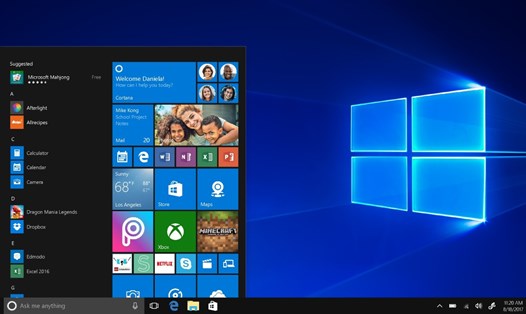For the first time, Microsoft is planning to offer paid security updates to home and personal users who continue to use Windows 10 after October 14, 2025. Previously, this service plan was only available to businesses.
With this latest decision, individual users will continue to use the secure Windows 10 operating system for at least nearly the next year.
According to AFP, Microsoft's decision to charge for security updates is intended to encourage individual users and businesses to switch to Windows 11.
For some people who continue to run Windows 10, there is no hope of upgrading in the future, due to incompatible hardware.
In fact, Windows 11 requires a new, high-performance computer. Your PC must have a 1 GHz or faster 64-bit processor, combined with at least 4GB of RAM. The operating system also requires at least 64GB of storage, a DirectX 12-compatible graphics card, and a Trusted Platform Module (TPM 2.0).
In a recent blog post, Microsoft explained that Windows 10 will no longer receive automatic security updates starting October 14, 2025. However, an extended security update (ESU) program will be set up for anyone who wants to continue receiving security updates.
This paid service is familiar to business customers, but will be extended to home users for the first time, as a 1-year option for $30, to continue using the secure operating system.
This program will only provide critical and important security updates for Windows 10; it will not provide new features, bug fixes, or technical support. Microsoft will notify users closer to the end of the program in late 2025.
Additionally, Microsoft announced that it will continue to provide security intelligence updates for Microsoft Defender Antivirus (the antivirus software component of Microsoft Windows) until at least October 2028.









